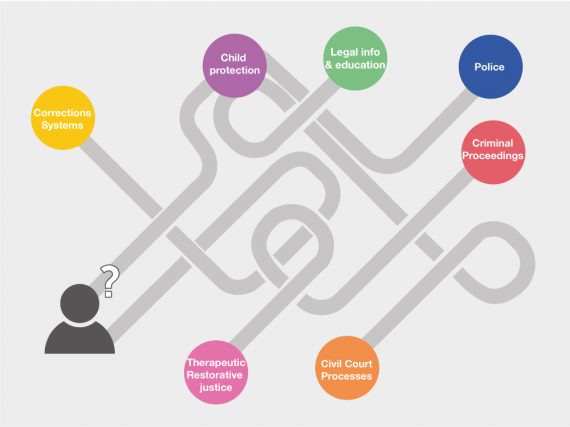More than just a piece of paper – Getting protection orders made in a safe and supported way
This project looks at improving the process which occurs when parties negotiate and agree to the conditions of a Family Violence Intervention Order before it is formally ordered by a court.
This process of reaching orders ‘by consent’ has been identified by the Royal Commission into Family Violence as an area of concern as it is not always conducted in a way which keeps victim-survivors safe.
Many Family Violence Intervention Orders are made through negotiation and agreement between the parties before being formally ordered by a Magistrate. This is called reaching orders by consent. There is no established process, however, by which this consent can be reached, meaning that many of these negotiations occur in an ad hoc way in the corridors of a court, with parties often feeling pressured for a range of reasons to come to an agreement so that the order is in place. These rushed negotiations can in turn result in conditions in the order which do not address a victim-survivor’s needs or provide adequate protection in the particular circumstances.
The CIJ is conducting extensive research across the legal and service system to understand how Family Violence Intervention Orders are made when they are agreed to by consent by the parties involved. This includes when a respondent agrees to an order without admitting that the family violence which has been alleged actually occurred.
The research will look at the factors which impact on the extent to which parties will consent to orders, as well as the factors which may impact on the content of these orders. It will also look at whether the imperative to achieve orders by consent has impacts on safety and risk in the short and long-term, as well as on a victim-survivor’s experience of the legal process when it may not involve recognition of the extent of violence to which she may have been subjected.
The CIJ will interview Magistrates, lawyers, police and specialist services, as well as parties to Consent Orders, to understand the factors involved. The CIJ will then make recommendations for a best practice approach to ensure that the process and outcomes of Consent Orders are as safe and supported as possible. A report will be provided to the Department of Justice and Regulation by mid 2019.




